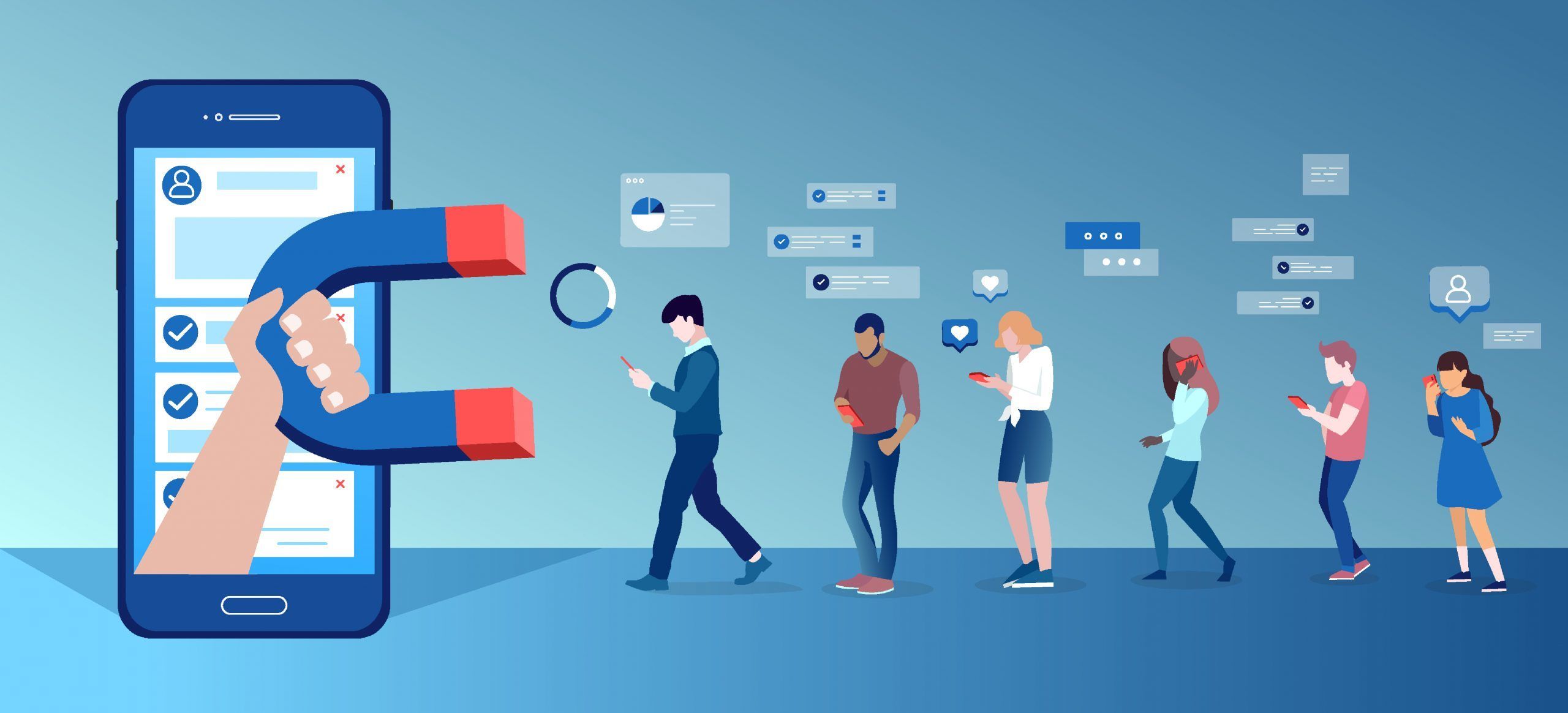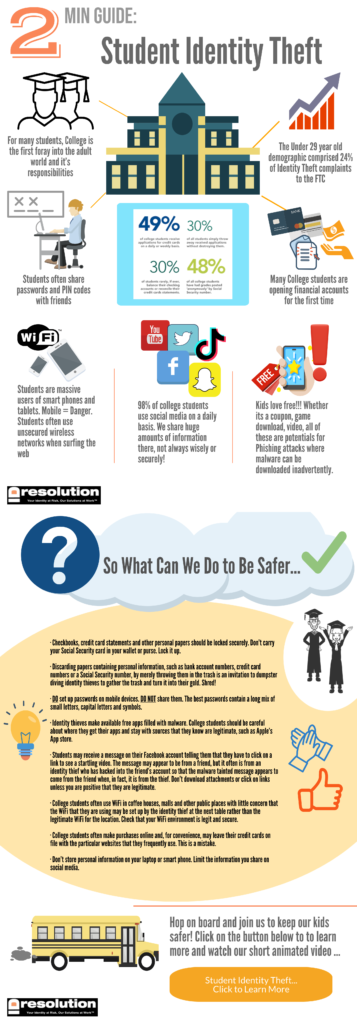
For many students, college is their first foray into an adult world full of newly realized responsibilities. Many are managing bank accounts and credit cards for the first time and paying and managing their various bills. This a world fraught with danger to their Identity and their financial and personal well being as they learn the importance of security regarding passwords, personal information online, use of social media, using unprotected Wi-Fi networks and more.
Let’s take a look at some of the issues:
- College freshmen are opening checking accounts, many for the first time, and getting their first credit cards.
- Most students haven’t developed the good habits they’ll need to stay safe. Students need to check bank and credit card statements regularly and often don’t.
- Students are massive users of smart phones and tablets. Mobile = Potential Danger.
- Students often use unsecured wireless networks when surfing the web.
- Students tend to be very trusting, sharing passwords and PIN codes with friends.
- Students are more likely than other people to fill out personal information that could be used by others to fake their identity.
- 98% of Students use multiple Social Media platforms daily. We share huge amounts of information there, not always wisely or securely!
Children often don’t need to use their Social Security number until they’re older, many not until they’re 18. This is especially true with regard to their establishing financial accounts. Social Security numbers were designed to track benefits, not identities and there is no centralized system to verify what name and birthdate rightfully own a Social Security number when it enters the system for the first time. Since they cannot apply for credit such as student loans/credit cards until they are 18, an eighteen year “black hole”, from birth to the present, is created where their identity is at risk and no one is monitoring their PII (Personally Identifiable Information). During this time, an identity thief can potentially take a stolen Social Security number, and attach a different name to it to commit ID fraud for years. In fact ID thieves use children’s Social Security numbers with DIFFERENT names 99% of the time according to reports.
So what can we do to try and mitigate some of these issues and keep our students safer?
- Checkbooks, credit card statements and other personal papers should be locked securely. Don’t carry your Social Security card in your wallet or purse. Lock it up.
- Discarding papers containing personal information, such as bank account numbers, credit card numbers or a Social Security number, by merely throwing them in the trash is an invitation to dumpster diving identity thieves to gather the trash and turn it into their gold. Shred!
- DO set up passwords on ALL devices. DO NOT share them. The best passwords contain a long mix of small letters, capital letters and symbols.
- Identity thieves make available free apps filled with malware. College students should be careful about where they get their apps and stay with sources that they know are legitimate, such as Apple’s App store.
- Students may receive a message on their Facebook account telling them that they have to click on a link to see a startling video. The message may appear to be from a friend, but it often is from an identity thief who has hacked into the friend’s account so that the malware tainted message appears to come from the friend when, in fact, it is from the thief. Don’t download attachments or click on links unless you are positive that they are legitimate.
- College students often use WiFi in coffee houses, malls and other public places with little concern that the WiFi that they are using may be set up by the identity thief at the next table rather than the legitimate WiFi for the location. Check that your WiFi environment is legit and secure.
- College students often make purchases online and, for convenience, may leave their credit cards on file with the particular websites that they frequently use. This can be dangerous.
- Don’t store sensitive personal information on your laptop or smart phone or if you do, ensure it is password protected. Limit the information you share on social media.

- As of January 2024, there are over 5 billion total social media users across all platforms.
- The average person uses seven different social networks per month.
- The amount of time adults use social media across all platforms is now higher than ever at nearly two hours per day
- TikTok is the fastest-growing social network
- 98% of Students use multiple social media platforms daily
- Phishing attacks via social media are exploding
Here’s a short animated video covering the issues we’ve highlighted. Take a look and feel free to share it!

